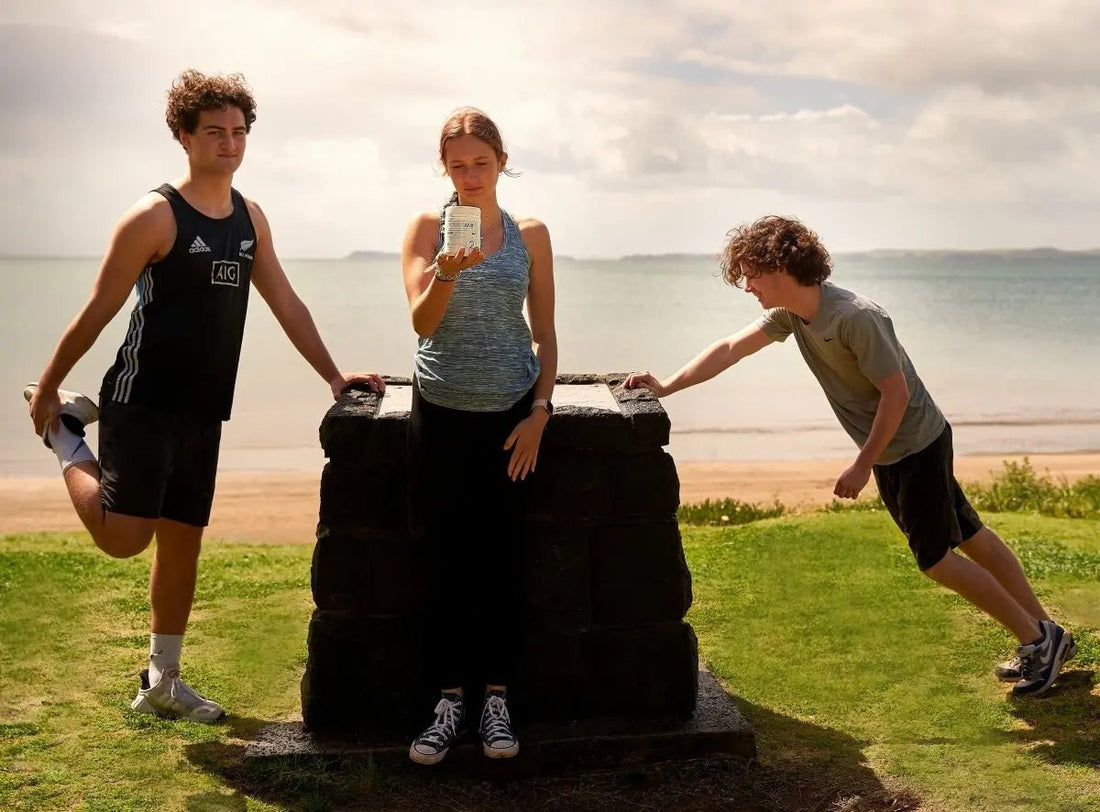As the business grows, POWERAMP promises not to sacrifice sustainability and remain committed to offering products that are most, GMO-free and contain no artificial flavours or colours. POWERAMP plans to start by developing the best rehydration drink we know how to make.
The company is currently based in Waikato Innovation Park, and all POWERAMP products are proudly designed and manufactured in New Zealand.
"Banned substance tested" refers to a process or program in which individuals or athletes are tested to ensure that they have not used any substances that are prohibited or banned by a particular organization, sport’s governing body, or regulatory authority.
This testing is often conducted to maintain fair competition, ensure the safety of participants, and uphold the integrity of the sport or activity.
Banned substances can include performance-enhancing drugs, recreational drugs, and other substances that are deemed to provide an unfair advantage, pose health risks, or violate the rules of the organization overseeing the competition. Testing typically involves collecting samples, such as urine or blood, from individuals, and then analyzing those samples for the presence of banned substances.
Athletes and participants in various sports and competitions are often subject to random or scheduled drug tests to detect and deter the use of prohibited substances. Those who are found to have used banned substances may face penalties, including disqualification, suspension, fines, or other consequences, depending on the rules and policies of the specific organization or governing body.
OUR BRAND | THE UNMET NEED
The Problem:
33 athletes in New Zealand are currently facing bans from their sporting codes for the possession or use of performance– enhancing drugs. Most claim innocence and then blame their coaches or trainers for recommending a supplement, which they then suggest, must have been contaminated with a banned substance.
Currently, there is no comprehensive range of sports supplements and electrolytes sold in New Zealand designed to meet the specific needs of high performance athletes and are also is tested for the presence of banned substances.
The Solution:
PowerAMP® has developed a comprehensive range, (currently FIVE supplements and ONE hypotonic fluid replacement beverage) focused on the training and competition demands of high performance athletes.
PowerAMP® is tested by an independent, WADA1-approved testing laboratory (Informed-Sport; UK). Our formulations are created in New Zealand to the highest GMP standards and also supported by the latest research in sports nutrition. PowerAMP® is the only fully dedicated sports nutrition brand, developed specifically to meet needs of high performance and endurance athletes. 1. WADA means World Anti-Doping Agency.
THE PROBLEM | BIGGER THAN FIRST THOUGHT
“IT’S THE ATHLETES RESPONSIBILITY” - World Anti-Doping Agency (WADA)
“The World Anti-Doping Code outlines that each athlete is obliged to ascertain that no banned substance has entered into his organism.” He/she is personally responsible for any banned substances found in his/her sample.
-
Despite the Australian TGA being the toughest regulatory agency in the world, a dietary supplement 2016 survey of sports supplements sold in Australia, found 19% of products to be contaminated with banned substances. https://www.informedsport.com/news/australian-supplements-survey-highlights-need-testing .
-
31% of products did not pass the safety test during a review of 24 different types of protein supplement, carried out in 2010 by ConsumerLab (USA)
-
44% of the positive doping samples established by the UK Anti-Doping Organization follows the administration of food supplements containing banned ingredients. Biomedical Research 2018; 29 (9): 1953-1955.
BUT ATHLETES STILL TAKE SUPPLEMENTS
A 2009 study published in the Journal of Sports Science reported that 85% of elite athletes take at least one dietary supplement each day. The is twice the usage rate for dietary supplement of the general public. R. J. Maughan et al,. Journal of Sports Sciences, 2007; 25(S1): S103 – S113.
Prevalence of supplement use in young, Canadian athletes, aged 11–25 years, is 98%. Journal of the International Society of Sports Nutrition 2015 12:49
Shop Now: https://powerampsports.com/products/electrolyte-hydration-powder



Leave a reply
Nunc vehicula quam semper odio varius tincidunt. Vestibulum ante ipsum primis in faucibus orci luctus et ultrices posue.
Please note, comments need to be approved before they are published.